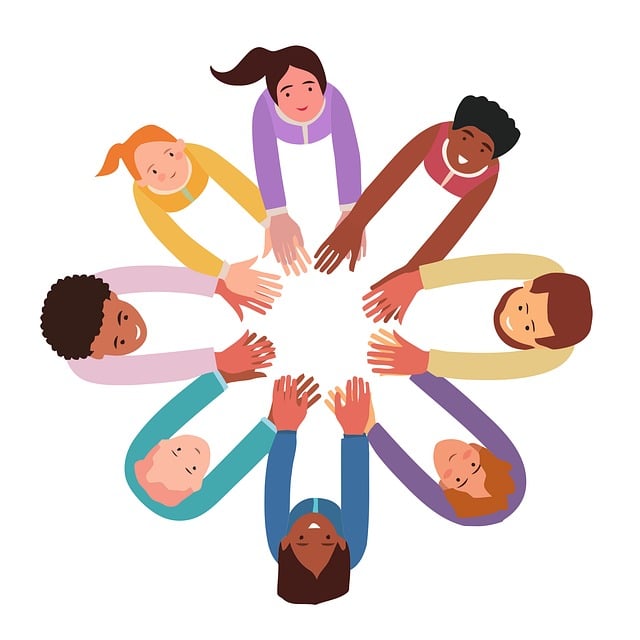Child welfare attorneys in Oregon are vital allies in protecting vulnerable children through complex legal systems. They collaborate closely with agencies, prioritizing the best interests of minors in cases of dependency, neglect, or adoption. Open communication and mutual respect guide this partnership, ensuring effective case management. The Attorney Collaboration Guide promotes a collaborative environment, fostering strong relationships among child welfare attorneys to create robust strategies for positive outcomes. This approach enhances services, improves case results, and strengthens community among legal experts. By working together, these professionals advocate effectively for children and families in Oregon's child welfare system.
In Oregon, child welfare attorneys play a pivotal role in ensuring the safety and well-being of vulnerable children. This comprehensive guide explores effective collaboration strategies for these legal experts, focusing on building strong relationships with colleagues and leveraging partnerships to enhance client outcomes. By delving into understanding roles, fostering collaborative practices, and navigating attorney dynamics, this resource equips child welfare attorneys with the tools to thrive in Oregon’s legal community, ultimately benefiting at-risk youth.
- Understanding the Role of Child Welfare Attorneys in Oregon
- Building Effective Working Relationships with Legal Colleagues
- Strategies for Collaborative Practice in Oregon's Legal Community
- The Benefits of Attorney Partnerships in Child Welfare Cases
- Practical Tips for Navigating Attorney-Client Dynamics in Oregon
Understanding the Role of Child Welfare Attorneys in Oregon

Child welfare attorneys in Oregon play a pivotal role in ensuring the safety and well-being of vulnerable children within the state’s legal framework. These legal experts are instrumental in navigating complex family court systems, often working closely with various child welfare agencies to protect minors’ interests. By collaborating effectively with attorneys, these professionals can help facilitate positive outcomes for children involved in dependency, neglect, or adoption cases.
The collaboration between child welfare agencies and attorneys is crucial for successful case management. In Oregon, attorney partnerships guide this relationship, emphasizing the importance of open communication, shared goals, and mutual respect. This partnership ensures that legal strategies are aligned with the best interests of the child, fostering a collaborative environment where everyone works together to overcome challenges and navigate the intricate attorney-client relationships in child welfare cases.
Building Effective Working Relationships with Legal Colleagues

Building strong and collaborative relationships with fellow attorneys is key for those working in Oregon’s child welfare system. Effective communication and trust are essential when navigating complex legal matters related to vulnerable children. By fostering positive connections with colleagues, child welfare attorneys can enhance their ability to advocate for their young clients.
The attorney collaboration guide encourages open dialogue and mutual respect among legal experts. This partnership approach enables a unified front in courtrooms, ensuring the best interests of the child are at the forefront. When working together, attorneys can pool their knowledge, resources, and diverse skill sets to create robust strategies that benefit all involved parties.
Strategies for Collaborative Practice in Oregon's Legal Community

In Oregon, successful collaboration among child welfare attorneys is essential for delivering high-quality legal services to vulnerable children and families. Building strong relationships with colleagues fosters a culture of trust and mutual respect, enabling a more holistic approach to case management. Working together allows child welfare legal experts to pool their knowledge, resources, and expertise, ensuring that every aspect of a case receives the necessary attention. By fostering attorney partnership, Oregon’s legal community can navigate complex cases more effectively while maintaining strong client relationships.
When implementing collaborative strategies, it is crucial to establish clear communication channels and define roles within the partnership. Regular meetings, open dialogue, and transparent documentation are vital for keeping all involved attorneys on the same page. This collaborative approach not only enhances case outcomes but also promotes a sense of camaraderie among child welfare attorneys, fostering a supportive environment that benefits both professionals and clients.
The Benefits of Attorney Partnerships in Child Welfare Cases

The strategic alignment of Oregon child welfare agencies with dedicated attorneys can significantly enhance outcomes for vulnerable children and families. By fostering strong partnerships, social workers and case managers gain access to specialized legal expertise, ensuring that every aspect of a case is addressed comprehensively. This collaborative approach allows for more efficient navigation through complex legal systems, enabling swift decision-making and effective case management.
Working with attorneys who specialize in child welfare law brings numerous advantages. These legal experts can provide crucial insights into the rights and protections available to children and families, ensuring compliance with state regulations and federal mandates. Through open communication channels, these partnerships facilitate a unified front, where all stakeholders work cohesively towards shared goals. This streamlined process ultimately contributes to improved outcomes and positive long-term effects for those involved in child welfare cases.
Practical Tips for Navigating Attorney-Client Dynamics in Oregon

When collaborating with attorneys in Oregon’s child welfare system, establishing a strong and open attorney-client dynamic is paramount. Building trust is essential for fostering effective communication, ensuring all parties are aligned in their goals and strategies. Child welfare legal experts recommend active listening, clear and consistent information sharing, and respecting confidentiality as foundational practices to navigate this relationship successfully.
Practical tips include maintaining regular contact, being responsive to inquiries, and providing comprehensive case updates. It’s crucial to understand the attorney’s perspective and legal considerations while offering your unique insights as a child welfare specialist. Embracing open dialogue, being transparent about expectations, and demonstrating professionalism will enhance the partnership, ultimately benefiting the well-being of involved children and families.






